
Citizenship for Children:
Civic engagement program to prevent child isolation
WORKSHOP/ PROGRAM DESIGN / SOCIAL IMPACT
As a program facilitator at approved specified NPO PIECES, I supported the design and facilitation of their Citizenship for Children (CforC) program, a 7-months program aimed to prevent the isolation of children through civic engagement. I have been coordinating a 10-15 person class since 2019: Mito class (Ibaraki prefecture) in 2019, Yamato-Takada class (Nara prefecture) in 2020, and Kansai region & general class in 2021.
Date
Sept 2018 – Jan 2022
Role
Program Facilitator
Responsibilities
Program design, workshop facilitation, fishbowl, world café, positioning map, brainstorming, reflection, print design, mentoring
Tools
Google Suite, Google Classroom, Mural, Zoom
The challenge
A child's emotional isolation is a state in which they lose trust in others and society, an environment where there is no one they can safely rely on. In Japan, 1 child dies from abuse every week. There has been more than 540,000 reported cases of bullying. Yet despite the pressing issue, there’s only 1 social worker to every 100 children at child consultation centers; and it takes 3-6 months before the first consultation at child psychiatric hospitals.
The solution
A program that fosters civic engagement and action to increase the number of trusted adults in the communities where children live, thus realizing an inclusive society where children feel belonged.
Find out more→ CforC program
(available in Japanese language only)
+laugh – a Japanese candy shop (dagashiya) was introduced in a nurse station/day service for children with disabilities. The multi-functional facility promote multi-generational interaction, where people from all walks of life feel like they are part of the community. Founded by one of the participants of the CforC 2021 general program.
The outcome
How have the participants changed after participating in the program? (surveyed with CforC 2020 participants)
Over 90% of participants answered that they “started to think about thoughts and feelings behind children’s actions and behaviors”
Half of participants answered that “a child opened up to talk to me about what happened at school”
1 out of 3 participants answered that “a child opened up to share their dream with me”
8 new social businesses and projects were born in various parts of Japan, including Tokyo, Fukuoka, Kochi, Nara and Ibaraki prefectures
Find out more → CforC 2020 annual report
(available in Japanese language only)
“People think and feel differently, even if we share the same goals. So, instead of trying to force ourselves to fit in, I realized that we could just keep going together, while acknowledging our differences.”
– Participant of general class, CforC 2020
Program set-up
The program is made up of three courses: ‘みつめる (Mitsumeru – gazing)’, ‘うけとる (Uketoru – receiving)’ and ‘はたらきかける (Hatarakikakeru – acting)’.
In the Mitsumeru Course, participants explore the concept of civic engagement through seminars and workshops. After that, two courses are available for those who wish to deepen their learning.
In the Uketoru Course, participants practice reflection in the form of ‘process recording’ to critically examine their interactions with children.
In the Hatarakikakeru Course, in addition to the aforementioned two courses, participants deepen their learning by taking additional seminars and workshops. At the end of the program, participants are encouraged to take actions or develop initiatives in their local community.
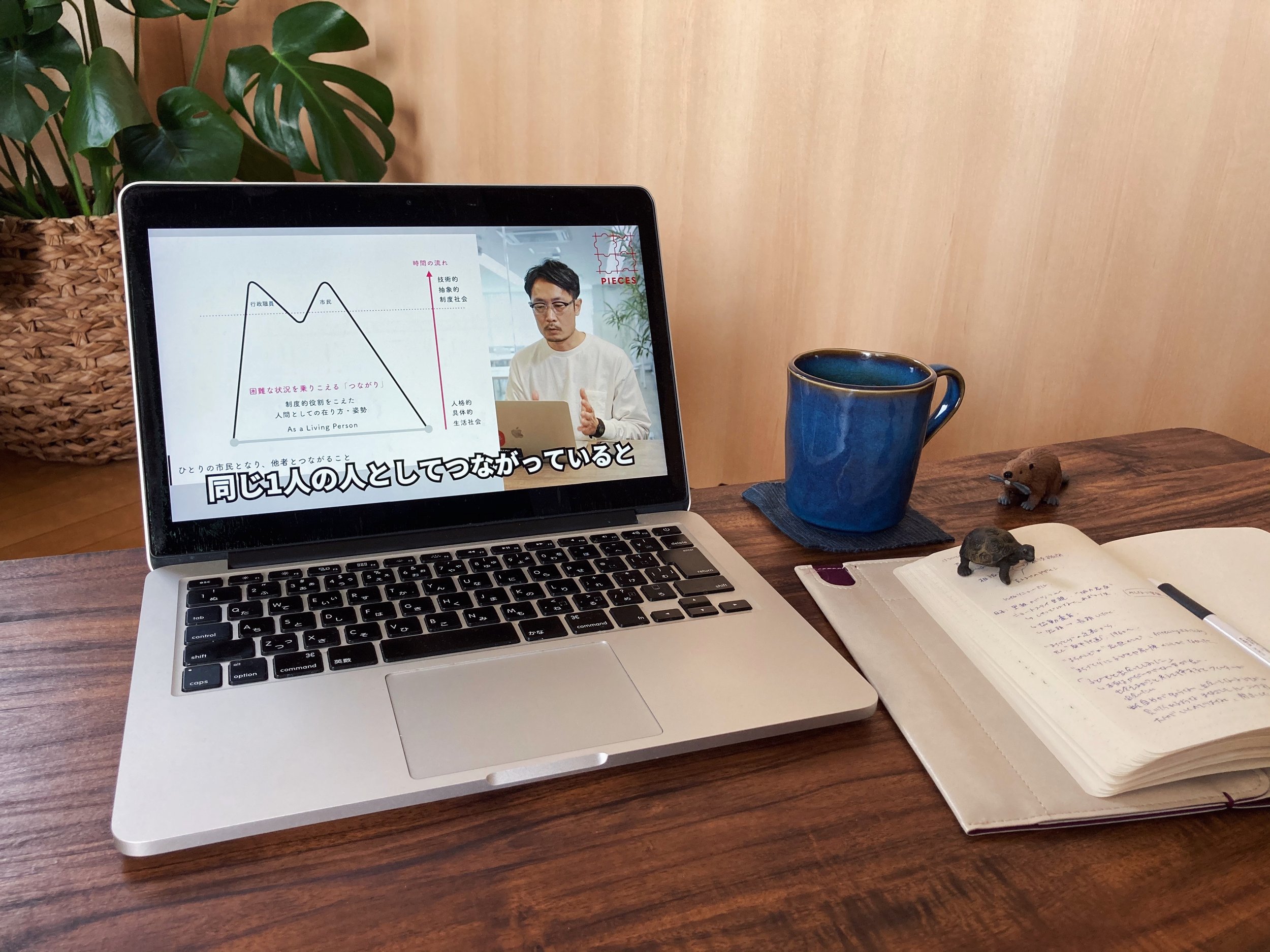
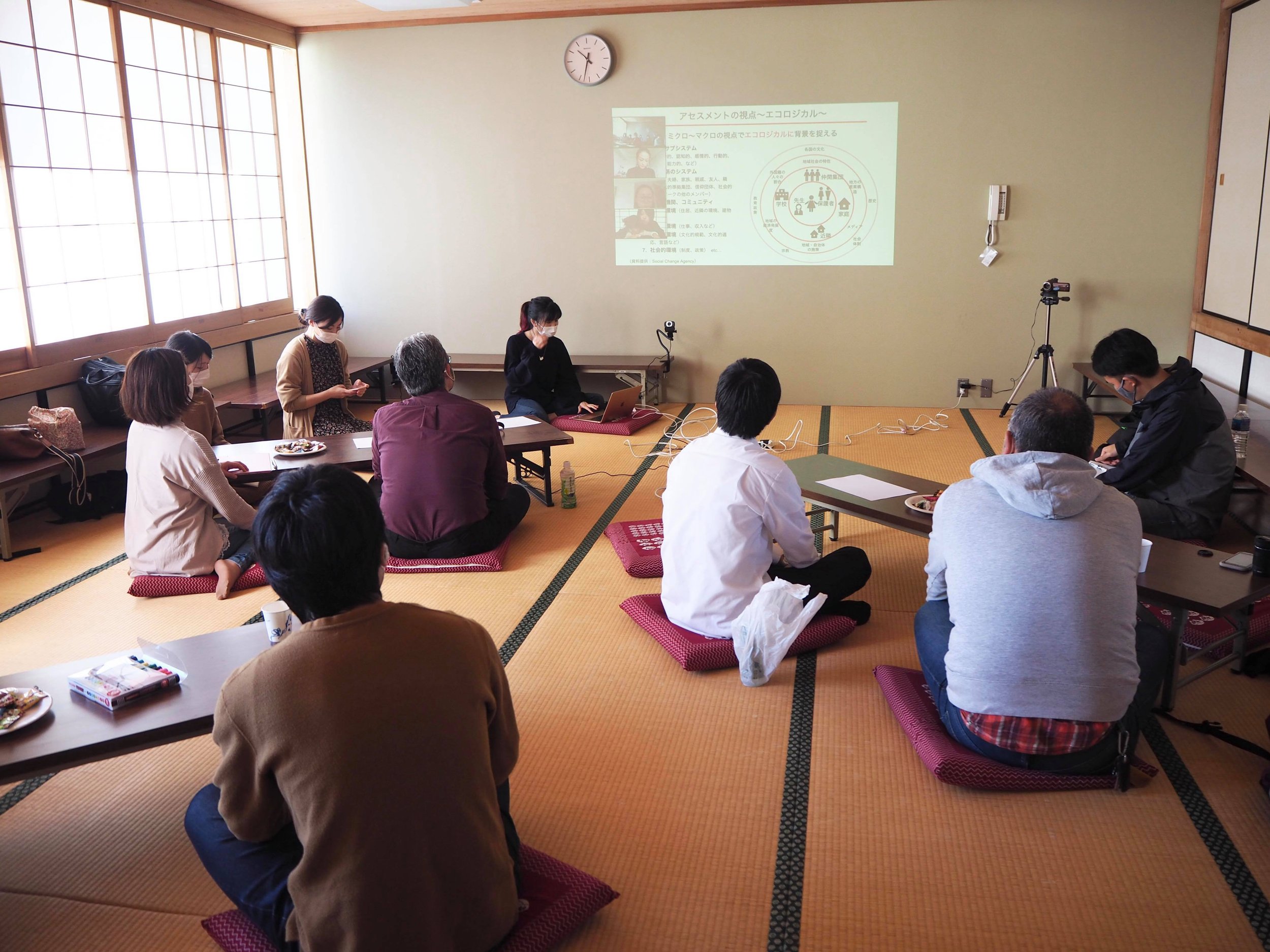
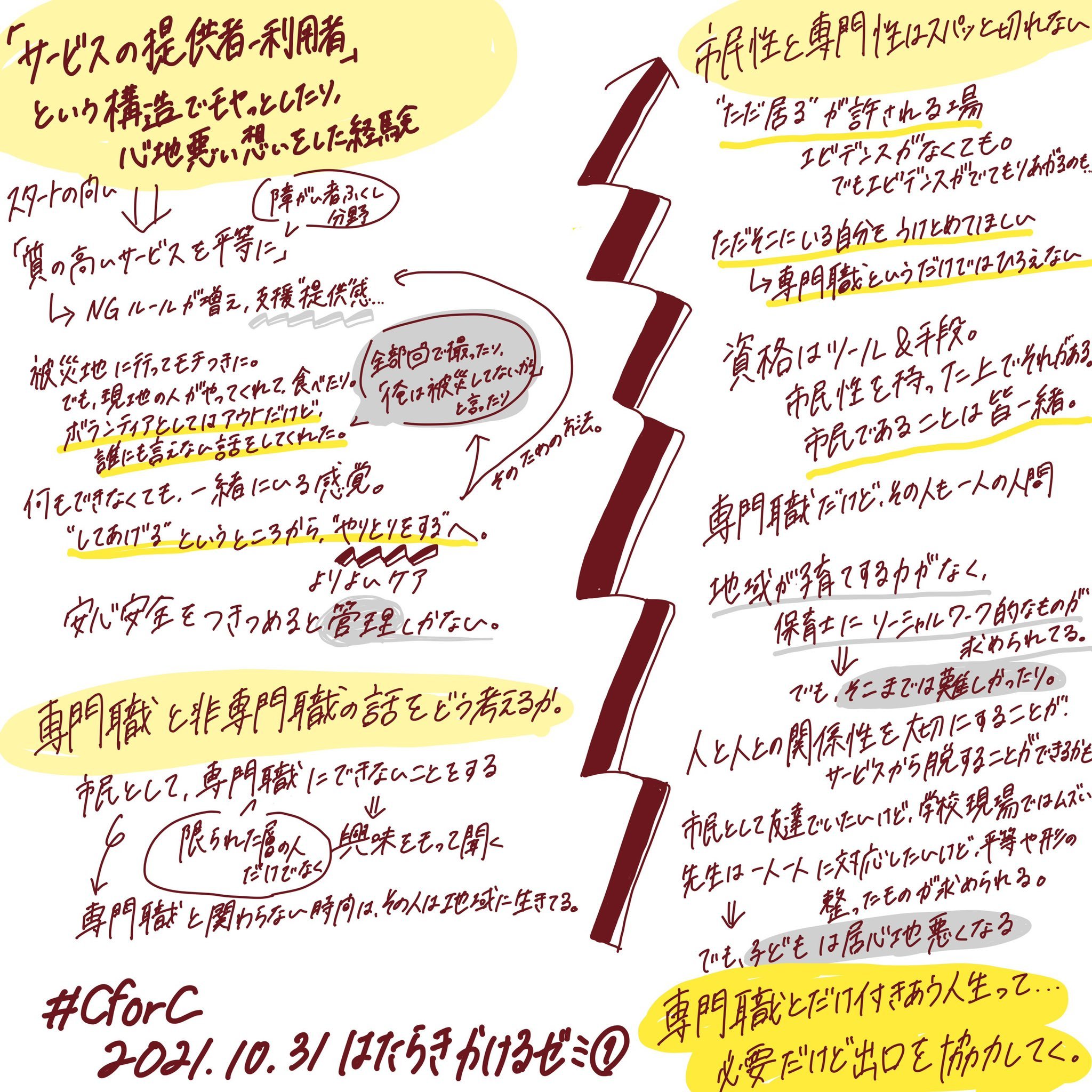
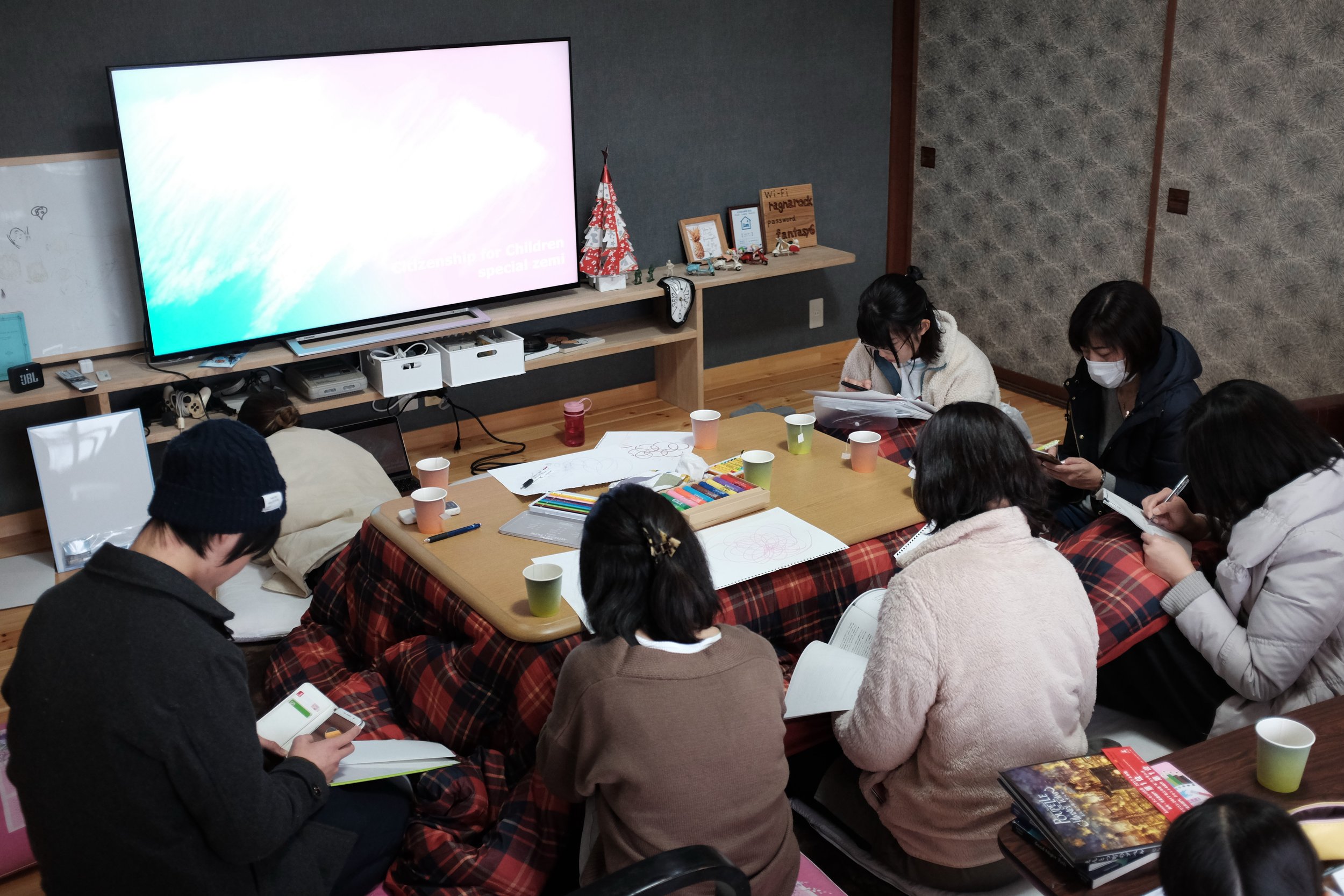
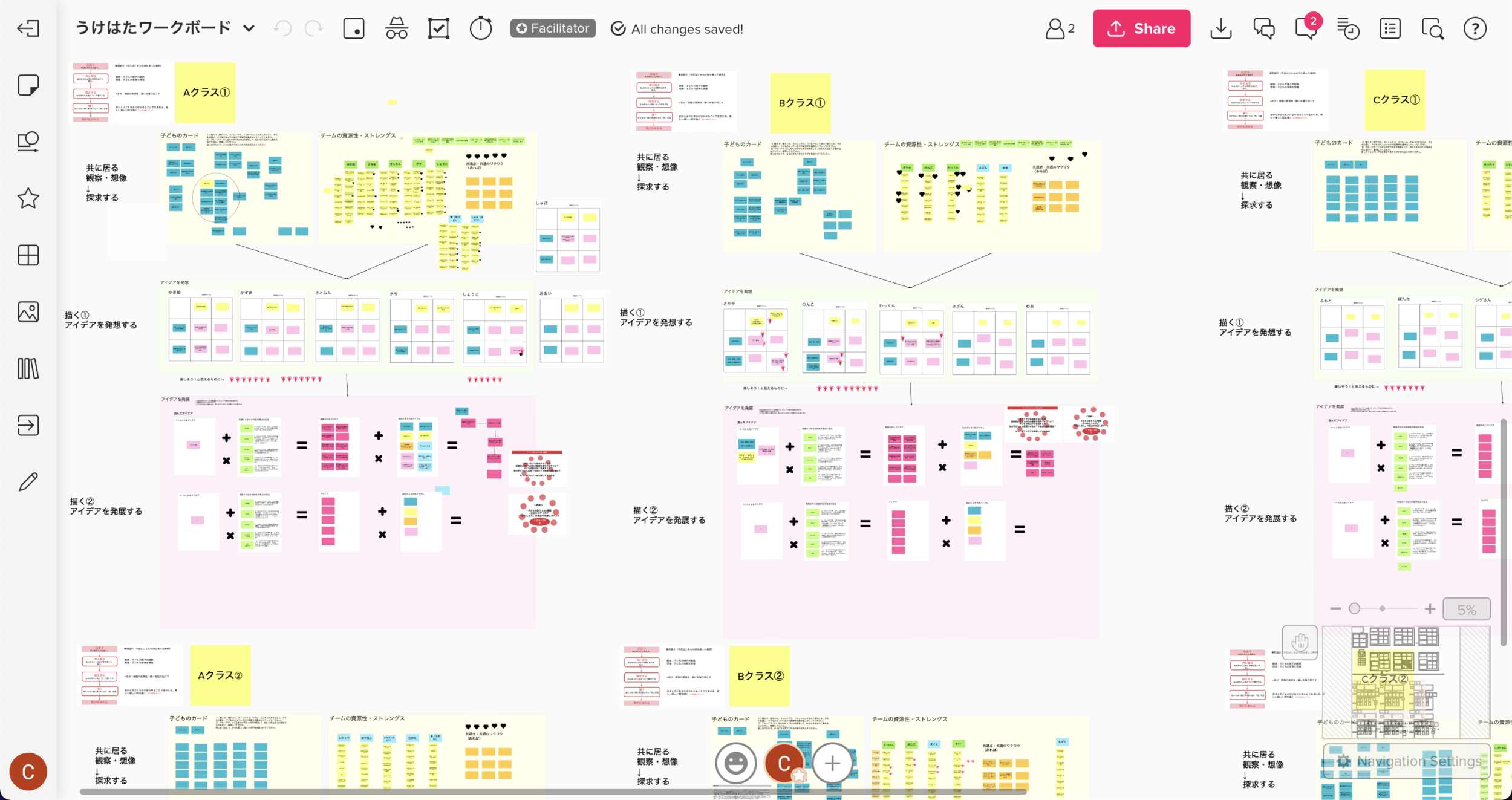
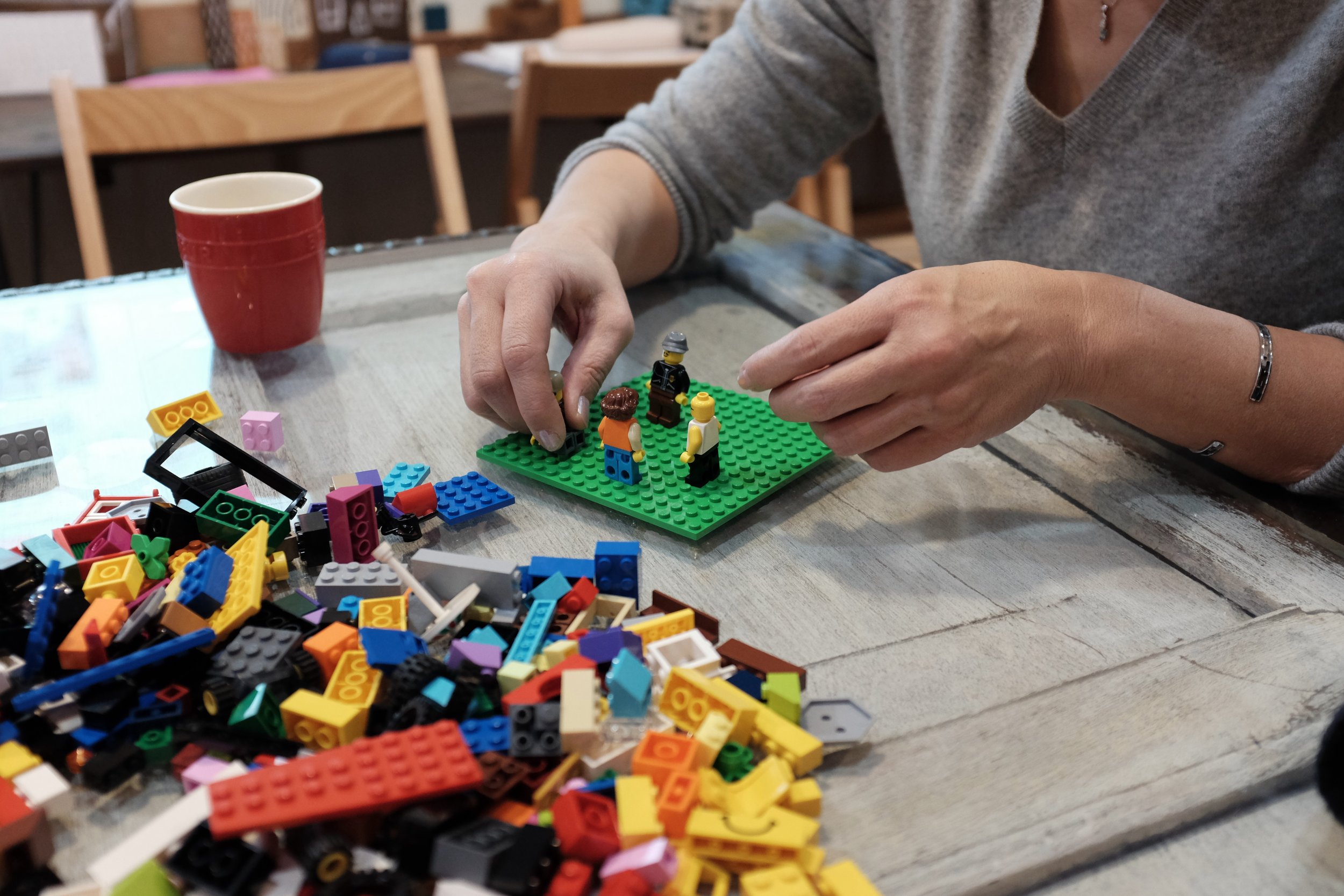

Seminars and workshops. During COVID, the program was conducted fully remotely.
Original reflection handbook, created for the CforC 2021 program. The reflection sessions in the CforC program are informed by a practice of ‘process recording’, which is a written account documenting all the feelings and thoughts that follows in the interaction between relevant parties. It originated as a nursing process record between patient and nurse, and it is now often used in teaching students in the field of psychiatric nursing.
Machinoko-dan – a kids playground initiated by one of the participants of the CforC Mito program.
The playground hosts workshops and mobile buses for local elementary, junior high and high school students.
All images are taken from PIECES website




